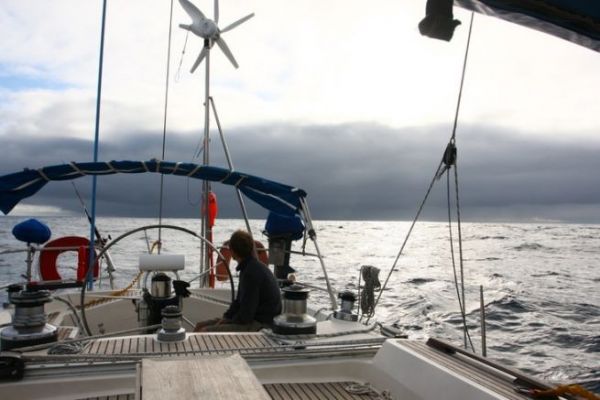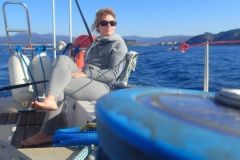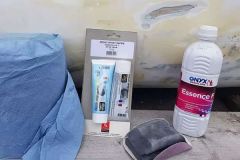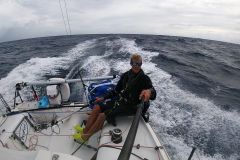Setting sail for several months, or even several years... It's a dream that conjures up images of absolute freedom, sunsets over the ocean and heavenly ports of call. But behind this idyllic image lies a reality with which ocean racing sailors are all too familiar: freedom at sea is earned through meticulous preparation.
At a recent conference with Koesio ocean racing skippers Audrey Ogereau and Erwan le Roux, the two shared the six essential pillars of successful preparation.
And it was obvious: these principles are the same for a long-distance cruise. So how can you draw inspiration from ocean racers to make your adventure a success?
Equipment: a boat ready to take on the miles
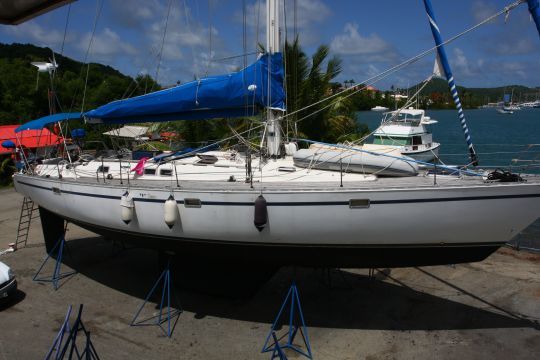
A racing boat is optimized for performance, a cruising yacht for reliability. But in both cases, every element is rigorously controlled. A well-prepared boat means serene sailing, with no nasty surprises.
- Making your sailboat more reliable rigging, sails, engines, electronics... everything must be inspected, checked and optimized before the start.
- Anticipating breakdowns : have essential spare parts at your disposal and master basic repairs.
- Adapting the boat to the program round-the-world or coastal sailing? The right choice of equipment (watermaker, solar panels, reinforced rigging) is essential.
Technique: automate the right reflexes
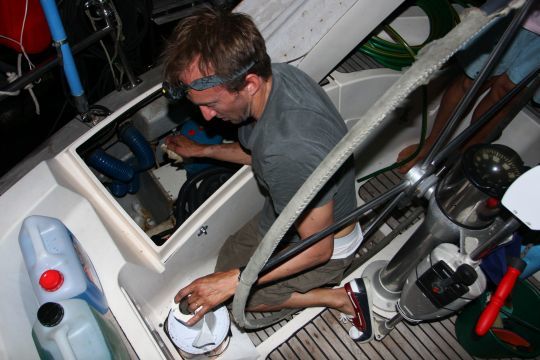
In ocean racing, every maneuver must be instinctive. In ocean cruising, knowing how to react without stress is just as crucial. A good sailor doesn't think about his actions, he acts.
- Mastering your sailboat learn how to react under sail and practice maneuvering with a small crew (customized courses).
- Simulating emergency situations a halyard failure, an autopilot problem, a loss of energy... it's best to be prepared.
- Involving the crew an autonomous crew member is a captain who sleeps better at night.
Nutrition: food, the sailor's fuel
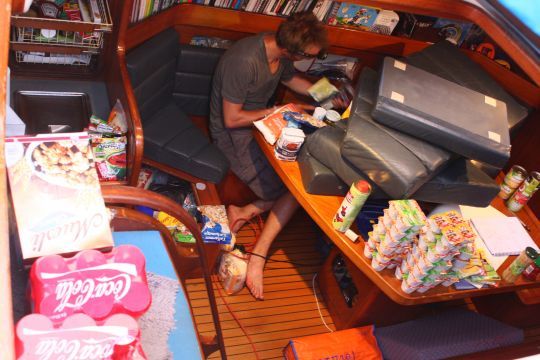
In racing, every calorie counts. When you're cruising, you've got to keep going over the long haul, without neglecting the pleasure. Eating well means taking care of yourself and your crew.
âeuros¢ Test your diet and allergies before setting sail: some foods go down better than others at sea.
âeuros¢ Anticipate victualling stops: some areas require prolonged food self-sufficiency.
âeuros¢ Maintain a balance: eating a variety of fresh produce boosts morale.
Physical: be ready to take on the sea
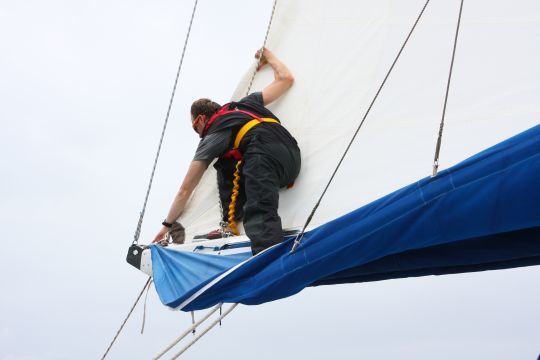
Skippers train like athletes. A crew in good shape will have more stamina to cope with the demands of the open sea. A good sailor is first and foremost a fit sailor. A fit body means safer, more comfortable sailing.
Preparing your body for a long cruise:
- Before departure work on muscular strength and endurance (back, legs), improve balance (sheathing, yoga).
- During the cruise warm up before maneuvers, stretch, stay active.
- After the cruise recover with stretching and hydration.
Mental: the driving force behind success
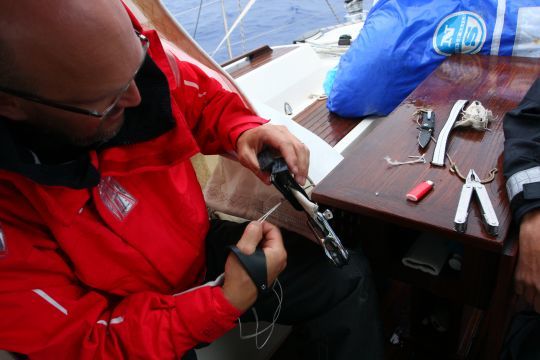
Ocean racing is a mental sport. So is ocean cruising: fatigue, loneliness, unforeseen events... it's all in the mind. A strong mind transforms every difficulty into a learning experience.
- Create reassuring routines structuring your days at sea helps you stay on course.
- Practice visualization and relaxation managing difficult times with practical tools.
- Accepting the unexpected nothing ever goes exactly as planned... and that's just as well!
Medical: maintaining your boat... and your crew
A skipper looks after his boat like an athlete looks after his body. When cruising, the crew must be as well-prepared as the boat itself. A healthy crew means a lasting adventure.
- A medical check-up before departure : vaccinations, medical check-ups, preparation of a complete pharmacy.
- First aid training an injury at sea can be managed independently.
- Plan boat maintenance over time to be repaired regularly to avoid major damage.
And beyond that?

The preparation doesn't stop there!
- Administrative who manages accommodation ashore, taxes, subscriptions during absence, insurance?
- Comfort and life on board we've got a lot to offer: facilities, remote schooling, connectivity, security... it's best to think ahead.
- Itineraries and stopovers : formalities, safety, cultural encounters.
Specialized support, such as that provided by a Sailing Planner, can be an invaluable asset if you want to sail with complete peace of mind.
Conclusion
Preparing for a long-distance cruise means adopting the rigor of ocean racing skippers. Successful sailing doesn't depend on luck, but on meticulous preparation. Planning your itinerary, anticipating unforeseen events and knowing your boat well are all key to setting off with peace of mind. As Éric Tabarly once said: " Sailing means accepting self-imposed constraints in order to be free. "
